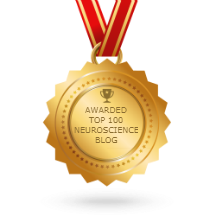-
27
Aug
Post-doctoral Researcher in Neurobiology
MRC | Clinical Sciences Centre
MRC Band 4 Salary £28,554 – £34,094 pa inclusive
Molecular mechanisms that govern later stages of neuronal differentiation, such as connectivity and plasticity, remain largely unknown. These aspects of neuronal development are believed to underlie normal higher cognitive functions, movement, dexterity etc. and to be involved in diseases including autism, schizophrenia, as well as motor neuron and neuromuscular defects. Transforming Growth Factor-beta (TGFbeta) signalling is associated with a variety of cellular and developmental events in different tissues including patterning of neural precursors. However, the role of this pathway in later stages of postmitotic neuronal differentiation in mammals remains unknown. Several studies in mammalian neuronal cultures suggest that the Morphogenetic Protein (BMP) branch enhances dendrite growth. In Drosophila neuromuscular junction and CNS synapse BMP signalling is upstream activity-dependent plasticity. However, this role of the pathway has not been addressed in vivo in mammals.
We are using a combination of mouse and ES cell genetic manipulations with in vitro differentiation and generation of chimaeras to address the above questions. We seek a post-doctoral scientist to participate in these studies under the direction of professor Vasso Episkopou.
Candidates are required to have a PhD in a related area and a background in molecular biology and neurobiology. Experience in techniques such as DNA and RNA analysis; designing and making DNA constructs; immuno-fluorescence; in situ hybridization; immunoblotting; and tissue culture. Candidates with mouse work experience would be preferred.
The post-holder will be expected to contribute to the work of the group and communicate results to lab members, write up and publish work in good peer-reviewed journals and take an active part in the academic activities of the CSC, including contributing to journal club and seminar presentations, and where appropriate to present data at national and international meetings.
The post-doctoral researcher would be appointed initially for one year.
For informal enquiries regarding the post please contact professor Vasso Episkopou (vepiskop@csc.mrc.ac.uk ).
Closing date for all completed applications is 20 September 2007.
For a full job description and application form visit our website www.csc.mrc.ac.uk or contact the CSC Human Resources: recruit@csc.mrc.ac.uk or telephone + 44 (0) 20 8383 3346 (answer machine out of hours), quoting reference MNV/PD
The MRC is an equal opportunities employer.
All final appointments may be subject to security clearance.
Related publications:
Episkopou, V., Arkell, R., Timmons, P. M., Walsh, J. J., Andrew, R. L. and Swan, D. (2001). Induction of the mammalian node requires Arkadia function in the extraembryonic lineages. Nature 410, 825-30.
Niederlander, C., Walsh, J. J., Episkopou, V. and Jones, C. M. (2001). Arkadia enhances nodal-related signalling to induce mesendoderm. Nature 410, 830-4.
Malas, S., Postlethwaite, M., Ekonomou, A., Whalley, B., Nishiguchi, S., Wood, H., Meldrum, B., Constanti, A. and Episkopou, V. (2003). Sox1-deficient mice suffer from epilepsy associated with abnormal ventral forebrain development and olfactory cortex hyperexcitability. Neuroscience 119, 421-32.
Episkopou, V. (2005). SOX2 functions in adult neural stem cells. Trends Neurosci 28, 219-221
Ekonomou, A., Kazanis, I., Malas, S., Wood, H., Alifragis, P., Denaxa, M., Karagogeos, D., Constanti, A., Lovell-Badge, R., and Episkopou, V. (2005). Neuronal migration and ventral subtype identity in the telencephalon depend on SOX1. PLoS Biol. 3, e186.
Mavrakis, K. J., Andrew, R.L., Petropoulou, C., Lee K-L., Dixon, J.E., Norris, D.P. *and Episkopou, V. (2007) Arkadia enhances Nodal signaling by coupling phospho-Smad2/3 high activity with turnover. PLoS Biol. 3, e67.
- Published by Dimitrios A. Adamos in: Jobs
- RSS feed subscription!

 Neurobot via RSS
Neurobot via RSS
